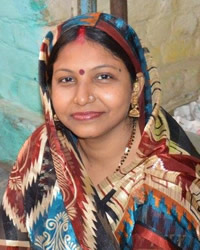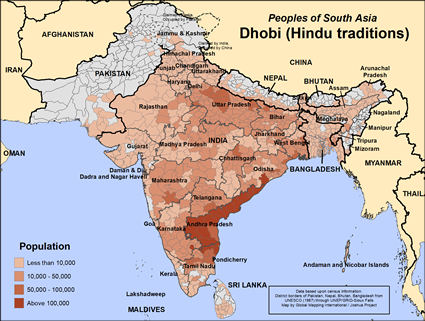Dhobi (Hindu traditions) in Bangladesh

Photo Source:
Anonymous
|

Map Source:
People Group data: Omid. Map geography: UNESCO / GMI. Map Design: Joshua Project.
|
| People Name: | Dhobi (Hindu traditions) |
| Country: | Bangladesh |
| 10/40 Window: | Yes |
| Population: | 157,000 |
| World Population: | 17,354,000 |
| Primary Language: | Bengali |
| Primary Religion: | Hinduism |
| Christian Adherents: | 0.00 % |
| Evangelicals: | 0.00 % |
| Scripture: | Complete Bible |
| Ministry Resources: | Yes |
| Jesus Film: | Yes |
| Audio Recordings: | Yes |
| People Cluster: | South Asia Hindu - other |
| Affinity Bloc: | South Asian Peoples |
| Progress Level: |
|
Introduction
When a Dhobi girl marries, her dowry usually contains just a few items, but almost always an iron is included. After Dhobi men wash the customers' clothes, the women iron them and keep the money they earn to pay for household expenses. Mothers teach the girls to iron at an early age, and boys help their fathers by washing the smaller articles of clothing and by delivering packages of clean clothes to their owners. With washing machines becoming more prevalent, the Dhobi livelihood is in danger.
Ministry Obstacles
There are few or no Christ followers among the Hindu Dhobi in Bangladesh. All they know is Hinduism, and possibly Islam since their neighbors are Muslim. Few will ever meet a Christ follower.
Outreach Ideas
Pray for the Followers of Christ
Pray for the Entire People Group
Pray that the Dhobi will hear the gospel and discover that Jesus Christ can wash away their sins.
Pray that believers will tactfully share gospel recordings and play Christian radio broadcasts for Dhobi Hindus.
Pray that the Holy Spirit will give faith to the Dhobi.